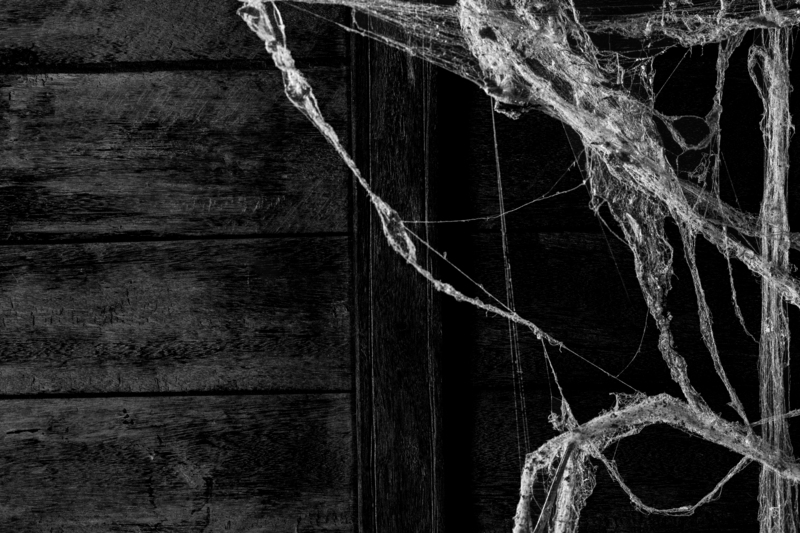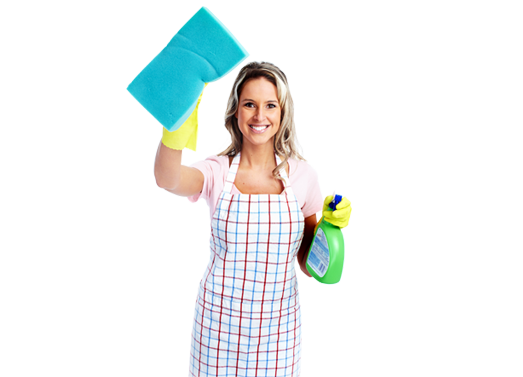Tenants' Resource for End of Tenancy House Cleaning
Posted on 02/07/2025
Your Ultimate Tenants' Resource for End of Tenancy House Cleaning
When it's time to move out of a rented property, end of tenancy house cleaning becomes an essential task. Not only does it help you leave a good impression on your landlord or letting agency, but a properly cleaned home can also maximize the chances of getting your full deposit back. In this comprehensive guide, you'll find useful tips, a thorough checklist, and expert advice--everything a tenant needs for a stress-free tenancy conclusion.

Why Is End of Tenancy Cleaning Important?
End of tenancy cleaning isn't just about tidying up. It's a deep, thorough cleaning process required by most tenancy agreements. Let's explore the key reasons why tenants should invest time and effort in this task:
- Protecting Your Deposit: Most disputes over deposits arise due to cleaning issues. A sparkling clean home increases the likelihood of a full refund.
- Meeting Landlord or Agency Requirements: Landlords expect the property to be in the same clean condition it was at the start of the lease.
- Positive References: Leaving the property in great condition guarantees better references for future rentals.
- Avoiding Additional Fees: If you don't clean to the required standard, you risk incurring professional cleaning charges, usually deducted from your deposit.
Understanding End of Tenancy Cleaning: What Does It Involve?
End of tenancy house cleaning is more exhaustive than regular domestic cleaning. It covers every inch of your property, from visible surfaces to hidden corners. Typical requirements include:
- Deep-cleaning kitchens, including ovens, appliances, and cupboards
- Sanitising bathrooms--showers, toilets, tiles, and sinks
- Wiping all skirting boards, doors, and frames
- Washing windows (internal and sometimes external)
- Vacuuming and cleaning carpets and hard floors
- Removing dust and cobwebs from all areas
- Deep-cleaning light fittings, switches, and sockets
- Cleaning inside wardrobes, cabinets, and drawers
Landlord's Cleaning Checklist
Landlords or agencies often provide an end of tenancy cleaning checklist. Always ask for this list--it outlines their expectations and helps you stay compliant.
End of Tenancy Cleaning: DIY or Hire Professionals?
One of the most important decisions for renters is whether to clean themselves or employ a professional end of tenancy cleaning service. Here's what to consider:
DIY End of Tenancy Cleaning
- Advantages: Cost-saving and more flexible scheduling. You control the attention to detail.
- Challenges: It's labor-intensive and time-consuming. Lack of professional equipment can make cleaning tough stains harder.
- Best for: Smaller properties, students, or those with a tight budget.
Hiring Professional Cleaners
- Advantages: Guaranteed results, high-quality equipment, time saved, and most agencies prefer it.
- Challenges: Higher upfront cost, needs to be booked in advance.
- Best for: Large properties, busy tenants, or if you want a guaranteed deposit return.
Tip: If you choose a professional service, request a receipt--some landlords require proof of specialist end-of-tenancy cleaning.
Essential End of Tenancy Cleaning Supplies
To carry out end of lease cleaning effectively, gather the following supplies:
- All-purpose cleaner
- Glass cleaner
- Disinfectant and bleach
- Oven/grill cleaning spray
- Microfibre cloths and sponges
- Bucket and mop
- Scrubbing brushes
- Dustpan and brush
- Vacuum cleaner
- Window cleaning tools
- Bin bags for rubbish removal
Don't forget any specialist equipment required by your tenancy agreement, such as carpet cleaners or steam cleaners.
Step-by-Step End of Tenancy Cleaning Checklist
To ensure your property shines from top to bottom, follow this comprehensive end of tenancy cleaning checklist:
General Areas (Living Rooms, Hallways, Bedrooms)
- Remove all personal items and clear out cupboards, shelves, and drawers.
- Dust all surfaces, including window sills, skirting boards, and shelves.
- Vacuum carpets and mop hard floors, paying special attention to corners and under furniture.
- Wipe light switches, sockets, doors, and handles.
- Clean windows and mirrors inside (and outside, if required).
- Check for and remove cobwebs from ceilings and corners.
- Wipe radiators, vents, and blinds.
Kitchen
- Empty and clean all cupboards and drawers inside and out.
- Clean worktops, splashbacks, and tiles--removing grease and stains.
- Scrub sinks and taps, removing limescale.
- Deep clean the oven, hob, grill, and extractor fan. Remove racks and trays for separate cleaning.
- Clean inside and behind the fridge and freezer. Defrost if moving out completely.
- Wipe down all appliances: dishwasher, washing machine, microwave, toaster, kettle, etc.
- Sweep and mop the floor thoroughly.
Bathrooms and Toilets
- Descale and polish taps, showers, and tiles.
- Scrub toilets, sinks, baths, and shower trays with disinfectant.
- Clean mirrors and glass shower screens.
- Wipe down radiators, fans, and shelves.
- Empty and clean bathroom cupboards or cabinets.
- Clean the floor, ensuring all hair and dust are removed.
Additional Areas
- Check attic, shed, balcony, or garage (if included).
- Ensure garden (if applicable) is tidy: mow lawns, remove debris.
- Dispose of all rubbish responsibly. Do not leave bins overflowing.
Troubleshooting Common Tenant Cleaning Challenges
How to Remove Tough Stains and Odors
- Carpet stains: Use a commercial carpet shampoo or baking soda paste for light stains. For deep-seated stains, consider renting a carpet cleaner.
- Oven grease: Apply an oven cleaner or a paste of baking soda and vinegar. Leave overnight for best results.
- Limescale: White vinegar or a strong limescale remover can work wonders on taps, showers, and toilets.
- Pet or smoke odors: Sprinkle baking soda on carpets and upholstery, let sit, then vacuum. Use activated charcoal pouches to absorb lingering smells.
Addressing Wear and Tear vs. Cleaning Issues
It's crucial to distinguish between 'fair wear and tear' (normal aging) and issues that require cleaning or repair. Document the property's condition in a written and photographic inventory at the start of your tenancy. If your landlord requests deductions for things outside your control, you can challenge them using this evidence.
Tips for a Hassle-Free End of Tenancy House Cleaning
- Start early; don't leave cleaning until moving day.
- Work room by room to avoid missing details.
- Read your rental agreement carefully for specific cleaning requirements.
- Arrange for all utilities to stay connected until after cleaning is done.
- Check windows, light bulbs, and smoke alarms--replace or clean as needed.
- Invite your landlord or agent for a pre-check inspection before the final handover.
- Always keep receipts for cleaning services or products.
Frequently Asked Questions About End of Tenancy House Cleaning
- Q: Do I have to use a professional cleaning company for end of tenancy cleaning?
A: Unless your contract specifically requires it, you may clean the property yourself. However, professional cleaning often offers a deposit guarantee and is sometimes required for carpets or upholstery cleaning. - Q: What happens if the property isn't cleaned to the landlord's standard?
A: The landlord may withhold a portion of your deposit to cover extra cleaning costs. - Q: How long does end of tenancy cleaning take?
A: It depends on property size. A studio flat may take a few hours; a 3-bedroom house can take up to a full day or more. - Q: Will my deposit be fully returned if I use a professional end of tenancy cleaning service?
A: While there is no guarantee, professional cleaning companies often provide re-clean assurances if the landlord finds issues, improving your chances of a full refund.
The Benefits of Using a Professional End of Tenancy Cleaning Service
Hiring a reputable cleaning company for your move-out cleaning is often the fastest route to a hassle-free experience. Here's why:
- Tailored cleaning checklist: Professionals comply with landlord and letting agent standards.
- Insurance and guarantees: Good cleaning firms are insured and offer re-cleans if required.
- Advanced equipment: Industrial vacuums, steamers, and eco-friendly products deliver better results.
- Time-saving: Focus on your move, not intensive cleaning.
When booking a service, always check for reviews, insurance, and a comprehensive checklist tailored to your property.

Conclusion: End of Tenancy House Cleaning for Peace of Mind
End of tenancy house cleaning can feel overwhelming, but with the right planning and resources, tenants can ensure their home is left spotless and their deposit is protected. Whether you choose to do it yourself or hire the pros, following an expert checklist and using the tips provided above will make your move-out process smooth and trouble-free.
Remember: A well-cleaned property not only keeps your current landlord happy, but also sets you up for easier, more successful rentals in the future. So take the time to do it right--or invest in professionals who deliver guaranteed results.
Additional Tenants' Resources for End of Tenancy Cleaning
- UK Government: Tenancy Deposit Protection
- Citizens Advice Bureau: Housing Advice
- Tenancy Deposit Scheme
We hope this tenants' resource for end of tenancy house cleaning helps you move out with confidence--wishing you a spotless success and a full deposit return!
```




